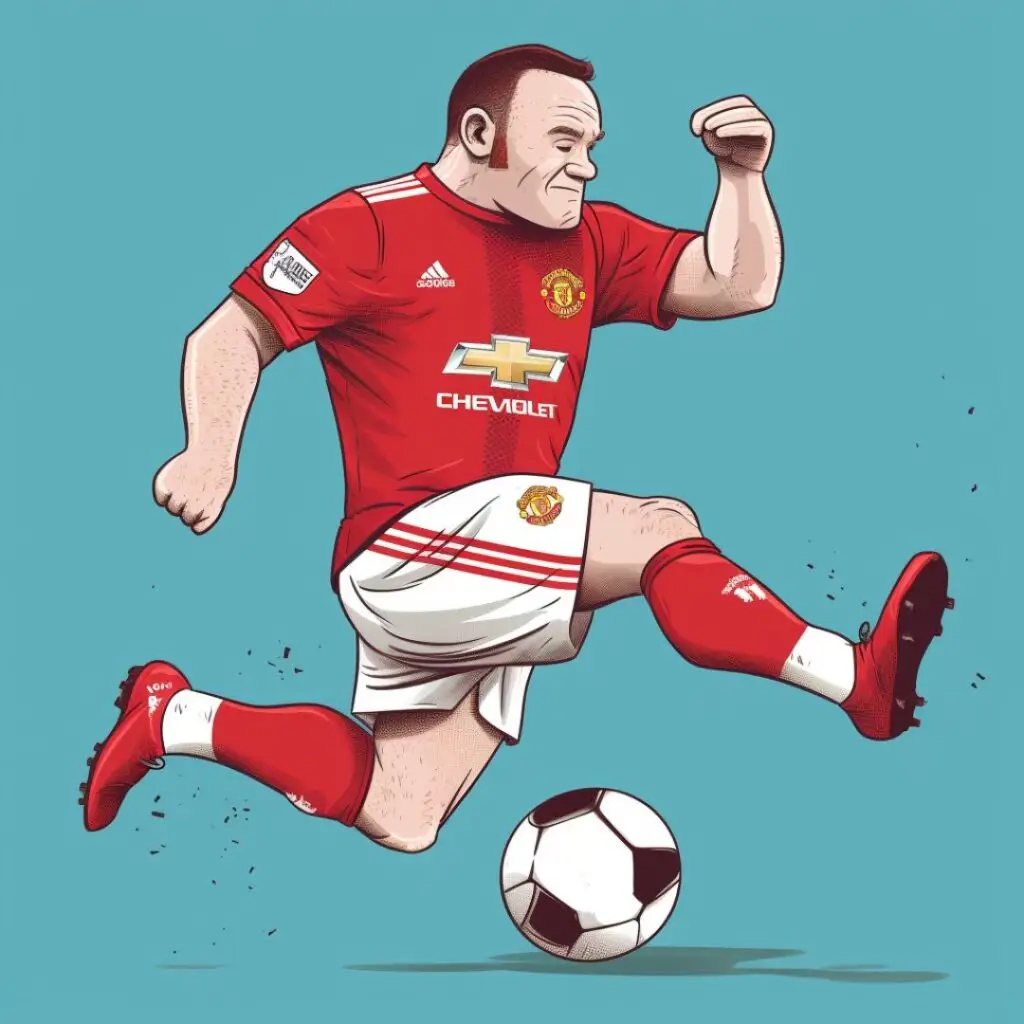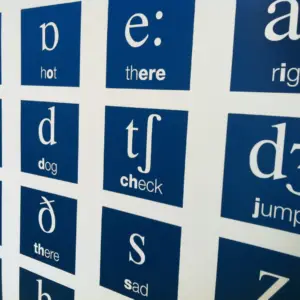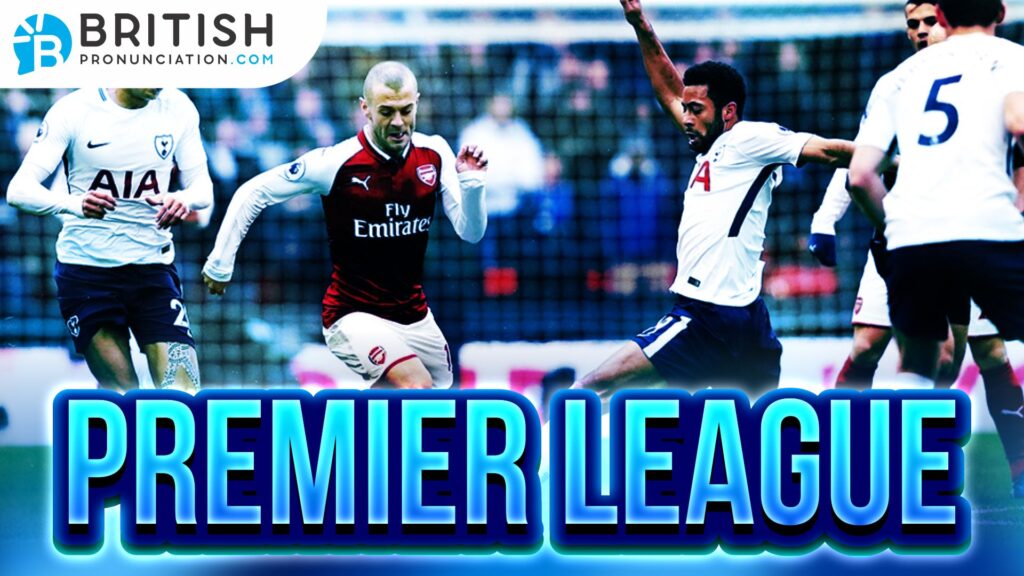Premier League Football Vocabulary - 20 Essential Phrases
The Premier League is kicking off this weekend! As a long-lived sport in Britain, the English language has gathered an extensive vocabulary of words and phrases associated with both playing and watching football. If you’re learning English as a second language, you’re bound to encounter some confusion over what some of this new vocab actually means, and how to properly use it yourself.
Some football words, like “pitch,” take on double-meanings in English, describing a completely different thing in football terminology than when used in a general context. Other words and phrases, like “referee,” are reserved only for sport. They are used across most other English-speaking, football-playing countries. Meanwhile, many of the most common football terms used in England, such as “hooligan,” are slang phrases specific to the UK’s football culture, as opposed to being globally-heard sports terms.
With this in mind, we’ve collected and defined 20 words and phrases found in British football vocabulary to help you get to grips with some of the most common and confusing sports terminologies.
1. Football (not Soccer)
Understanding the word ‘football’ can be confusing if English isn’t your first language. The style of football popular in the UK, Europe and South America isn’t the same as American Football – an entirely different sport which comes from the USA.
US English has own word for ‘English’ or ‘European’ football – “soccer”. However, most places across the world use “football”.

2. Pitch
We play football on the “pitch”. Americans tend to use the word “field” for a lot of sports. In British English, and when talking about football, “pitch” is the preferred word.
3. Own Goal
An “own goal” is the term used to describe a player scoring a goal into their own team’s net rather than their opponent’s. Although this move is usually a mistake, the goal still counts as a point for the opposing team.
4. Ref
“Ref” is a common, shortened slang word for “referee”. The referee is the match official who ensures all players keep to the rules of the game.
Get Weekly Tips By Email
5. Booking / Sent Off
The ref has the authority to give players a yellow card if they break the rules of the game. This is a “booking.” If a player receives two yellow cards, they become a red card. The player is “sent off” the pitch and prevented from playing the remainder of the game.
6. Sub / Super-Sub
“Sub” is short for “substitute” – a reserve player who can replace someone on the team. Subs can also be switched with someone on the pitch for tactical purposes – when this is effective and changes the game, we call them a “super-sub.”
7. Bottled It
This is a common phrase used by Premier League pundits. “Bottled it” is a common British slang term to describe how someone has failed to perform under pressure. In football, this phrase is said by spectators after a player fails to score a penalty goal.
8. Relegation
“Relegation” defines the placement and changing of teams within the different leagues of UK football. At the end of a season, if a team lands at the bottom of their league, they lose their place in the league and move down to the league below.
9. Hooligan / Hooliganism
A football “hooligan” is a borderline-derogatory word to describe an intensely emotional or drunk football fan at a match (a football game). The English-speaking media use the term “hooliganism” to describe rowdy, anti-social behaviour before, during or after a match, and often with a tone of condemnation.
10. Goalie
“Goalie” is short for “goalkeeper” – the player who guards the goal.
11. Save
A “save” describes when the goalie stops the ball from going over the goal line by kicking or catching it, preventing the opposing team from scoring a point.
12. Lob
“Lob” is a common UK slang word for “throw” (usually with force, across a long distance). You will find it across all types of non-formal situations. “Lob” describes the way a goalie threw the ball back to his team after saving a goal.
13. Screamer, Corker, Belter, Banger…
On the topic of goals, several slang words are often thrown about to describe the act of scoring an unforgettable or game-changing goal for your team. Most of these border on onomatopoeia (words that mimic the sound they represent). It’s in the following sentences: “Jimmy scored a belter,” or “That was a corker of a goal!”
14. Back Of The Net
We all love seeing the ball hitting the back of the net in the Premier League. While being a literal description of a successful goal, you will hear the phrase “back of the net” in England outside of the football context to celebrate any point-blank success: “Half-price pints? Back of the net.”
15. Touch and Go
“Touch and go” refers to a tactical move where a footballer momentarily passes the ball to their teammate before running to a different position to receive it back again.

Start IMPROVING Your Pronunciation Today!
16. Nutmeg / Meg
Known merely as a cooking spice to the rest of the world, “nutmeg,” or its shortened form, “meg,” is a British football term for the risky move of passing the ball through the legs of an opponent.
17. Pace
“Pace” is generally used to describe human speed, usually in terms of walking, or in instances such as “keeping pace” (keeping up to speed with others). It’s also used to describe the speed at which something progresses, such as, “That was a very slow-paced film.”
In football, “pace” specifically refers to the speed each player is running on the pitch.
18. Foul
The common English word “foul” could describe anything unpleasant, unethical or disturbing, often in terms of smell or taste. In most sports, including football, the word “foul” takes on another meaning – describing a discounted move that is unfair, invalid or violates the rules of the game.
19. Free Kick
A free kick is a kick given to a team for free by the referee, after an instance of foul play by the opposing team.
20. Caught Sleeping
“Caught sleeping” is an easy-to-grasp slang phrase describing a player or team who lacks concentration and plays a bad game because of it. It could also be used to describe being caught off-guard by the other team, e.g. “Rashford was caught sleeping.”
I hope you enjoyed this Premier League vocabulary list. If you are looking to improve your speaking skills, you must click here to read this post! It will definitely help you.
Other Blogs You Might Like....

Chris Pratt and the Essex Accent
Chris Pratt and the Essex Accent Hollywood actors have a unique talent to tell a story through their character’s eyes, using body language, facial expressions,

What is IPA (International Phonetical Alphabet)
What is the International Phonetic Alphabet and How Can It Help with English Pronunciation? The International Phonetic Alphabet (IPA) sets the global standard for pronunciation.
How do Homophones, Homographs and Homonyms Affect Pronunciation?
What Are Homophones, Homographs and Homonyms and How Do They Affect Pronunciation? Homophones, homographs and homonyms form a vital part of English grammar. Words which

Difficult Pronunciation: Bitch vs Beach
Can You Tell the Difference Between Bitch and Beach? Many students around the world struggle with these 2 common words. Today we are here to

7 Celebrities Who Speak With Cockney Accents
7 Celebrities Who Speak With Cockney Accents As a multi-cultural capital city, London accents are as varied as its people. If you’re learning English and

Scottish TV Shows to Help English Learners Improve Their Listening Skills
Scottish TV Shows to Help Your Listening Skills Understanding regional British accents isn’t always easy. With so many diverse pronunciations and localised phrases, even some

